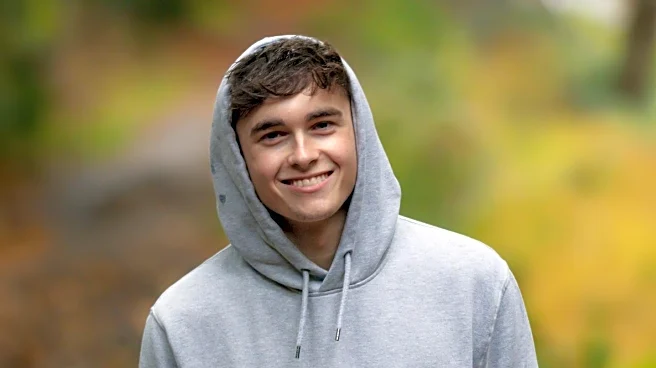What's Happening?
Actor and TV presenter Joe Swash has released a new BBC documentary titled 'Joe Swash: Forgotten Young Dads,' where he delves into the challenges faced by young fathers. Swash, who became a father at 24, shares his personal experiences of feeling unsupported
and vulnerable during his early years of fatherhood. The documentary features interviews with young fathers aged 18 to 22, highlighting issues such as social stereotypes and the lack of parental support services. Swash emphasizes the need for society to change its perception of young dads, who are often stigmatized as irresponsible or absent. The documentary also features Kevin Stoodley, founder of North East Young Dads and Lads, a charity providing support to young fathers.
Why It's Important?
The documentary sheds light on the societal challenges and stigmas faced by young fathers, a group often overlooked in discussions about parenting. By highlighting these issues, Swash aims to foster a more supportive environment for young dads, encouraging them to seek help and engage in open conversations. The film underscores the importance of positive male role models and the need for more support services tailored to young fathers. This initiative could lead to broader societal changes, promoting inclusivity and understanding for young parents, and potentially influencing public policy to provide better resources and support systems.
What's Next?
The documentary may prompt discussions among policymakers and community leaders about the need for increased support for young fathers. Organizations like NEYDL could see increased attention and funding, allowing them to expand their services. Swash's call for societal change might inspire other media figures to address similar issues, potentially leading to a shift in public perception and more inclusive parenting policies. The documentary could also encourage young fathers to form support networks, fostering a community where they can share experiences and advice.
Beyond the Headlines
The documentary touches on deeper issues such as toxic masculinity and the role of male figures in parenting. By addressing these topics, Swash challenges traditional notions of masculinity, advocating for a more nurturing and supportive approach to fatherhood. This could lead to cultural shifts in how masculinity is perceived and expressed, encouraging men to embrace roles that involve caregiving and emotional support.














